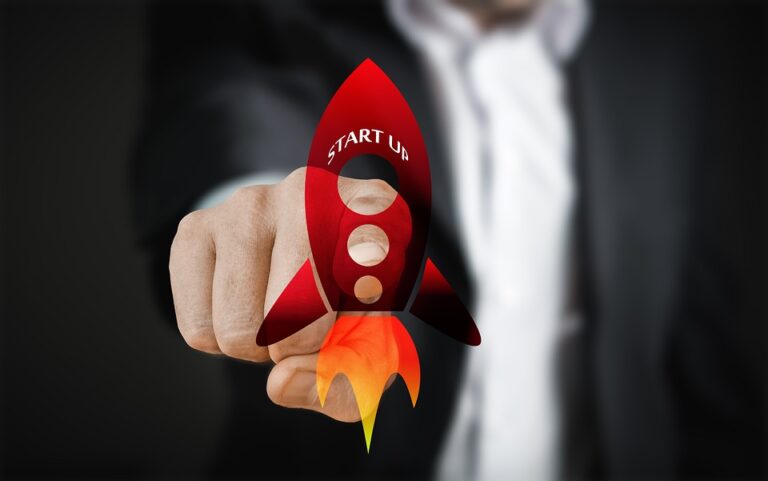Wheels of Change: The Role of Automotive Startups in the Transition to Sustainable Mobility
Introduction
In a world increasingly concerned about climate change and environmental sustainability, the automotive industry stands at a pivotal crossroads. Traditional automobile manufacturers face mounting pressure to innovate and adapt, while automotive startups are emerging as key players in the quest for sustainable mobility. This article explores the vibrant landscape of automotive startups and their critical role in transforming the transportation ecosystem.
The Emergence of Automotive Startups
The automotive industry has historically been dominated by large, established manufacturers. However, the surge of automotive startups in recent years indicates a significant shift in how vehicles are conceived, built, and utilized. These startups bring fresh perspectives and innovative technologies that challenge the status quo. Unlike traditional manufacturers, they are often unencumbered by legacy systems and can pivot quickly in response to market demands.
Innovative Solutions for Sustainable Mobility
Automotive startups focus on several critical areas, including electric vehicles (EVs), autonomous driving, shared mobility, and alternative fuels.
-
Electric Vehicles (EVs): Startups such as Rivian and Lucid Motors are pushing the boundaries of electric mobility with high-performance vehicles. Their commitment to sustainability encourages larger manufacturers to invest in EV technology.
-
Autonomous Driving: Companies like Waymo and Aurora are revolutionizing transportation with self-driving technology aimed at reducing traffic accidents and improving efficiency.
-
Shared Mobility: Startups such as Zipcar and Turo are changing how people view vehicle ownership, promoting shared resources and reducing the number of cars on the road.
- Alternative Fuels: Companies focusing on hydrogen fuel cells or biofuels are exploring options that could further reduce carbon footprints and diversify energy sources in transportation.
The Challenges Faced by Startups
While these startups play vital roles in the shift towards sustainable mobility, they face a unique set of challenges:
Funding and Investment
Securing capital is often a major hurdle for automotive startups. Traditional investors may be hesitant to invest in companies that require significant upfront investments with uncertain returns. Yet, an influx of venture capital has been observed, as more investors recognize the long-term potential of sustainable transportation solutions.
Regulatory Hurdles
Navigating the complex web of automotive regulations can be daunting. Startups must meet safety and environmental standards while trying to innovate rapidly. Collaborating with government bodies can be essential for overcoming such barriers.
Market Competition
As the number of automotive startups continues to rise, competition intensifies. Startups must differentiate themselves not only through technology but also by creating a compelling brand story that resonates with environmentally conscious consumers.
Successful Case Studies of Automotive Startups
Tesla: Pioneering the EV Revolution
One of the most notable success stories in the automotive startup space is Tesla. Founded in 2003, Tesla has transformed the EV market and accelerated mainstream adoption of electric vehicles. By focusing on renewable energy, software-embedded vehicles, and a robust charging infrastructure, Tesla has set the benchmark for other manufacturers.
Rivian: Adventure-Ready Electric Trucks
Rivian has carved out a niche by developing adventure-focused electric trucks and SUVs. Their innovative approach, paired with a strong commitment to sustainability and a focus on customer experience, has garnered them significant investor interest and has set them apart in a crowded marketplace.
Lucid Motors: Luxury Meets Efficiency
Lucid Motors aims to deliver high-performance, luxury electric vehicles that rival traditional gas-powered cars. Their commitment to exceptional design, advanced technology, and sustainability has attracted attention from affluent consumers and investors alike.
The Future of Sustainable Mobility
As automotive startups continue to innovate, their impact on sustainable mobility will only grow. Here are several trends to watch:
Increased Collaboration
Expect more partnerships between startups and established manufacturers. These collaborations can foster knowledge sharing, enhance product offerings, and expedite the development of sustainable vehicles.
Greater Focus on Circular Economy
Startups are leading the charge toward a circular economy in automotive design, emphasizing recyclable materials, battery recycling, and sustainable manufacturing processes.
Advancements in Technology
With emerging technologies like artificial intelligence, machine learning, and IoT integration, startups are poised to enhance vehicle efficiency, safety, and user experience significantly.
Conclusion
The role of automotive startups in the transition to sustainable mobility is crucial and multifaceted. By embracing innovative technologies and prioritizing environmental sustainability, these companies are not just contributing to a more sustainable future; they are reshaping the entire automotive landscape. As we look ahead, it’s clear that the wheels of change are in motion, powered by the relentless creativity of automotive startups. Whether you are an investor, a consumer, or simply an enthusiast, the evolution of mobility is one you won’t want to miss.
Call to Action
Stay updated on the latest trends and innovations in the automotive industry by following top automotive news platforms and engaging with local and global startups dedicated to sustainable mobility. Together, we can drive the change towards a cleaner, smarter future!


